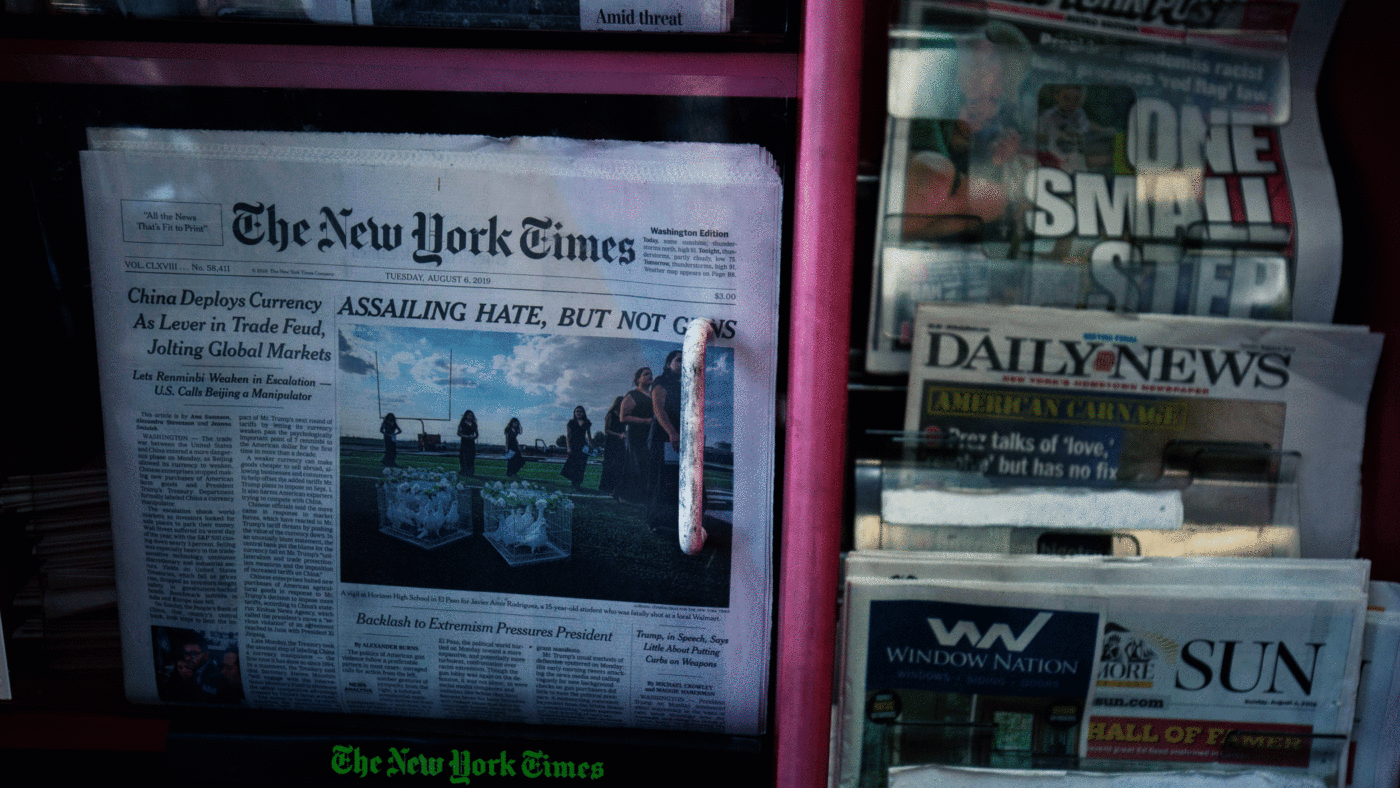To listen to some journalists, the break-up of Google and Facebook is essential to the proper functioning of our democracy. But on reflection it seems just as likely that people who work for newspapers are using their bully pulpit to argue for the protection of their corner of the media landscape.
This a particular problem in the United States, where the economic model of most newspaper journalism is about a century behind that of Britain. Anyone who has ever worked in both can tell you horror stories of the naked waste and inefficiency in the US model. Layers of editing, worrying over the comma and colon; days spent seeking the wished for quote from someone, anyone, rather than simply stating the desired point directly. This is intimately bound up with how, until very recently, the US newspapers were geographic monopolies.
The sheer size of the US means that something actually printed on real paper just cannot be distributed around the entire country. Even getting the same paper across a single state is enough of a challenge. It followed that the industry structure favoured city newspapers, each serving an urban area and its hinterland.
The income was tripartite, split between classifieds, display advertising and distribution income. The way that classifieds worked was the same as with Facebook and Google today – it’s a winner-takes-all process with network effects. That meant Americans tended to end up with one monopoly newspaper in each population centre. Without much in the way of competition, those publications made a pretty penny.
Unfortunately for the papers, the arrival of the internet killed off the protection that geography had afforded them, while stealing classifieds income through Monster.com, e-Bay and the rest. Facebook and Google may now be taking some of the display advertising but the damage isn’t really being done by that at all. It’s already been done by collapses in classified and distribution income, such that each city paper is now struggling for a place in a national – rather than local – market.
But there’s a limit to how many different articles we need on each national story really. A few, certainly, but hundreds?
All this happened to the British market over a century ago. Its much smaller size, combined with the optimisation of the rail network meant the UK had newspapers with national distribution well before World War I. Those overnight trains could be loaded with print from one, perhaps two, print works and be in every shop before opening time.
Several things followed from that. A classifieds section – and the attendant revenue – has never really been a major part of newspaper income in the UK. The internet stole that from the local papers, certainly, but not the nationals. And while the UK had a selection of newspapers, they have only ever had a dozen or so major titles. They competed, because that’s how markets work, but they did so on the basis of attitude, political slant, even the complexity of language used.
As so often, Yes Minister described reality well:
“Don’t tell me about the press,” says minister Jim Hacker, “I know exactly who reads the papers. The Daily Mirror is read by people who think they run the country; The Guardian is read by people who think they ought to run the country; The Times is read by the people who actually do run the country; the Daily Mail is read by the wives of the people who run the country; the Financial Times is read by people who own the country; the Morning Star is read by people who think the country ought to be run by another country, and the Daily Telegraph is read by people who think it is”.
We may or may not like some of those descriptions – or even some of those newspapers – but there is undoubtedly a certain competition of viewpoint and expression. In America there is a dreadful monotone concentration of views, even if it is spread out over a much wider geographical area.
The slashing of journalists’ jobs in the States – and make no mistake, the numbers are falling off a cliff – is coming much more from the absence of geographic monopolies and classifieds income than it is from Google and Facebook stealing display advertising. It follows that zeroing in on the apparent evils of Big Tech is not going to help journalists earn a living – adaptation to the new economic circumstances is.
It may be that in America they too end up with a handful of national titles competing on style, stance and outlook. A reduction in the number of newspapers may lead, remarkably, to a growth in diversity among them. That is no bad thing. After all, diversity of opinion is rather more important to democracy than the number of people employed to scribble those opinions down.
It’s worth noting that decent sections of the British press are remarkably profitable these days. It is possible to make it all work in this new world. Although we might note that unions have nearly no influence in the UK press, whereas they remain an active influence on publishers across the pond.
The argument that the tech giants have to be broken up in order to foster journalism is for the birds. We have, in the English speaking world, plenty of evidence that it’s not necessary.
There is one joy to this though. It is true that the tech giants profit from network effects. But then so too did the newspapers, as above, when they were the local monopolies themselves. And there is a certain satisfaction to seeing those who lived by network effects dying by them too.
CapX depends on the generosity of its readers. If you value what we do, please consider making a donation.


